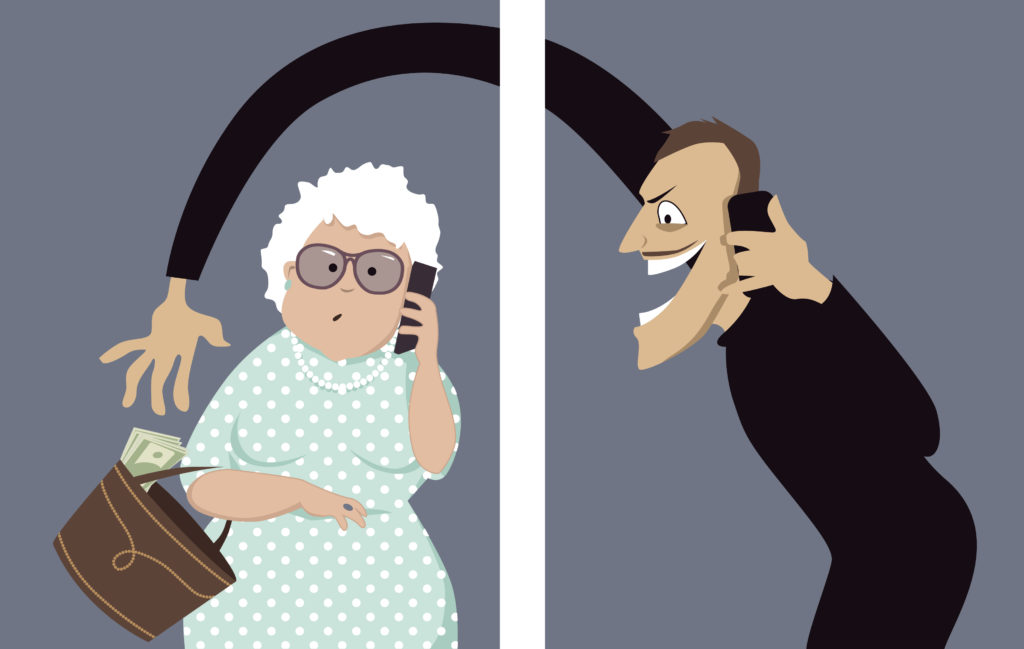Q: My grandmother needs her roof replaced and was trying to get a home improvement loan, but now she’s suddenly talking with someone about reverse mortgages or selling her home outright.
I think the person she’s meeting with is trying to scam her. What can I do?
A: You are right to have a healthy skepticism of anyone trying to influence your grandmother into a major financial decision such as a reverse mortgage or the sale of her home.
Many such transactions are legitimate and can be beneficial to the homeowner. However, it’s important to be aware that older adults can be the target of predatory lending or home-buying tactics.
Many older adults are long-term homeowners so the equity they’ve built up in their homes is greater. They make good targets due to living on a fixed income and facing rising property taxes, the threat of foreclosure, the cost of major home repairs, and not understanding the full value of their home.
Compound this with social isolation, possible cognitive decline and increased anxiety due to the pandemic, and you have the ideal situation for unscrupulous real estate investors seeking to pressure people into poor decisions.
According to the National Center for Law and Elder Rights, older adults of color may be particularly at risk for these scams because many might be house rich but cash poor.
The best recommendation for your grandmother is to make sure she gets comparative information about her home’s value, and to check the credentials of anyone with whom she is dealing. Legitimate offers of refinancing or purchase on her home can be researched, and legitimate individuals don’t have a problem with that.
Someone asking her to sign something and take advantage of a deal that will disappear if she doesn’t “act quickly” should raise red flags.
For more information about predatory lending and home equity theft, visit ncler.acl.gov, or contact the Federal Deposit Insurance Corporation at 877-275-3342 or www.fdic.gov, to access consumer assistance or file a complaint.

Q: I think my cousin is taking advantage of his mom and spending her money to himself, even though he has a good job.
My aunt is very frail and seemed confused and frightened the last time I visited. Her clothes were dirty and her hair wasn’t combed, which is not the way she used to be. What can I do?
A: This is a timely question as June is Elder Abuse Awareness Month. Everyone should be educated on possible signs and symptoms of elder abuse.
Depending on the relationship you have with your cousin, you might first talk to him from a supportive angle. Discerning whether someone is in a situation of their own choosing or in a situation out of their control can be challenging from the outside looking in and without having all the information.
Acknowledge that your cousin has a busy schedule and ask if there is anything you can do to help in caring for your aunt. His response might better clarify the situation.
According to the Associated Living Federation of America, 1 in 10 older adults experience some form of abuse in their lifetime, and 9 in 10 elder abusers are relatives.
The most common form of abuse is financial exploitation and extortion. Sudden changes in financial situations, missing medications, money or possessions, and unattended medical needs, poor hygiene or unusual weight loss are all signs of possible elder abuse.
The important thing is to take action if you see the need. Anonymous reports can be made about suspected abuse of elder or vulnerable adults by calling Michigan’s Elder Abuse Hotline at 855-444-3911.
If you see something, say something.
